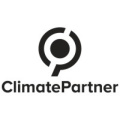
ESGgen Limited (Omnevue)
Summary
Omnevue offers a robust ESG and CO2e accounting platform designed to help businesses of all sizes measure, report, and manage their environmental, social, and governance impacts. The platform integrates with financial, HR, and other business data sources to provide automated, real-time ESG reports that meet international standards such as ISAE 3000. Omnevue’s products include features for secure data storage, audit-ready reports, and tailored dashboards for small businesses, offering a comprehensive solution for ESG reporting and compliance.
Our principle
Cut through the green tape
We don't push agendas. At Net Zero Compare, we cut through the hype and fear to deliver the straightforward facts you need for making informed decisions on green products and services. Whether motivated by compliance, customer demands, or a real passion for the environment, you’re welcome here. We provide reliable information—why you seek it is not our concern.
Details
Company name
ESGgen Limited (Omnevue)
Headquarters
Eastbourne, East Sussex, GBR
Date of establishment
2021-05
Website
Software

vueesg is a smart platform designed to simplify ESG (Environmental, Social, and Governance) reporting. It collects, calculates, and benchmarks data to help businesses comply with regulations like CSRD and TPT, create net-zero strategies and monitor supply chain emissions. With features like automated invoice reading and financial-grade data assurance, vueesg ensures accurate, reliable, and easy-to-share sustainability reporting.
vuecarbon by omnevue is a smart platform that helps businesses track, calculate, and reduce their carbon emissions. It automates data collection, provides detailed carbon reports, and supports Net Zero planning, making it easier to meet regulations and improve sustainability whatever your reasoning is.




